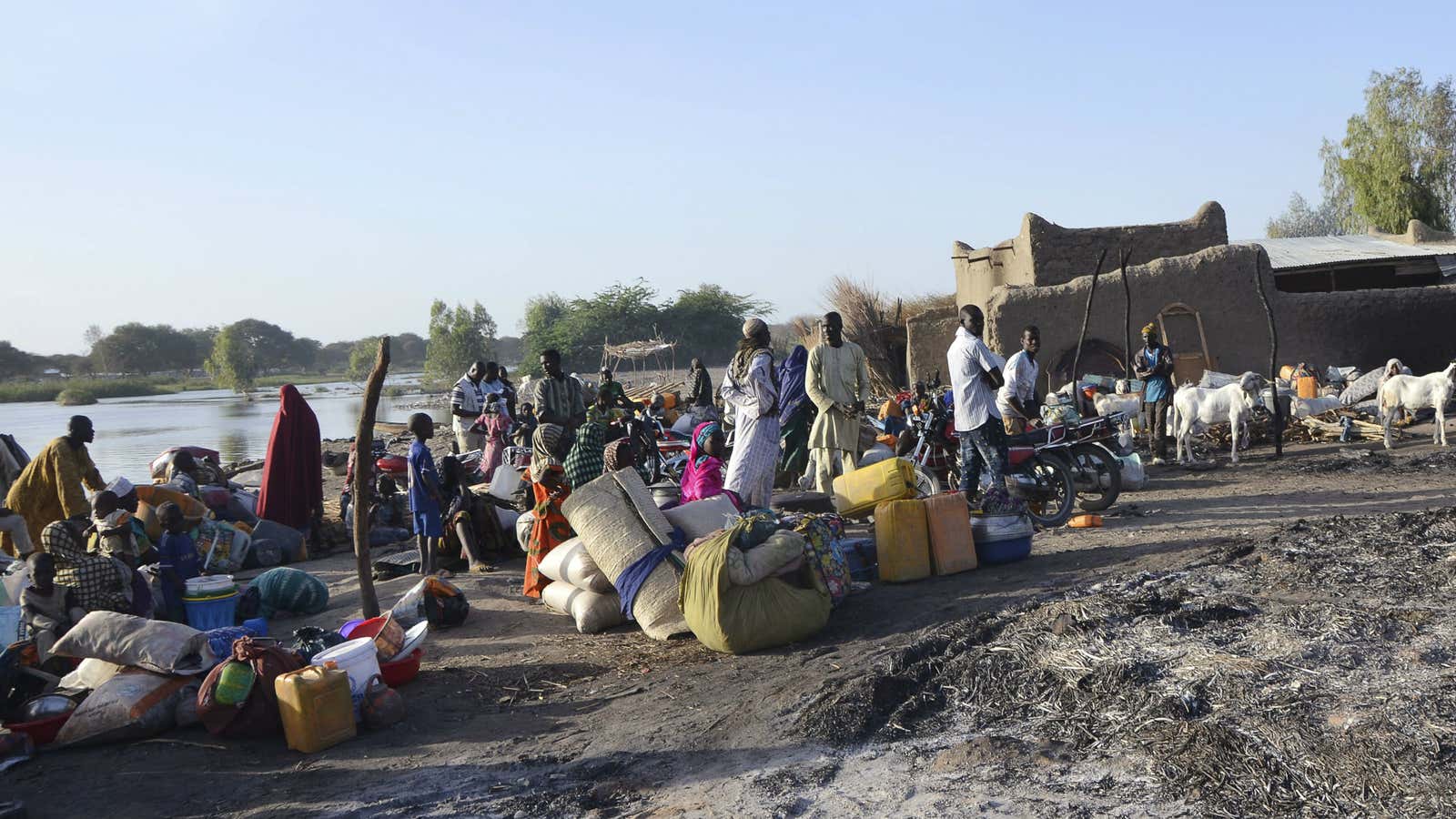Not for the first time in the last two years, Nigeria’s government has claimed to have defeated terrorist sect, Boko Haram.
For much of the past decade, the sect has led a devastating insurgency in Nigeria’s northeast, killing thousands and rendering millions more homeless. Under president Muhammadu Buhari however, Nigeria’s military forces have been successful in the fight against the sect, recovering swathes of previously occupied territory and freeing hundreds of abductees.
In a BBC Hard Talk interview on June 29, Tukur Buratai, Nigeria’s army chief, said Boko Haram has been “defeated.” But recent evidence suggests otherwise. So far in 2017, Boko Haram has launched 43 attacks which have resulted in 200 civilian deaths, data from a new report on the state of Nigeria’s northeast by SBM Intel, an Africa-focused market intelligence firm, shows.
Most recently in June, Eid al-Fitr celebrations in Maiduguri, the largest city in Nigeria’s northeast, were interrupted by bombings. Indeed, during the week which Buratai had his interview, there were at least ten bombings around the city, according to SBM Intel. Recent attacks have targeted the University of Maiduguri, once described as the safest place in the city at the height of the insurgency. The university defiantly stayed open throughout the Boko Haram insurgency before being bombed, for the first time, in Jan. 2017.
It’s not the first time Nigeria has appeared to claim a premature victory against Boko Haram. Back in December 2015, Nigeria’s president Buhari claimed Boko Haram had been “technically” defeated, but in the month that followed, attacks by the sect resulted in over 200 deaths.
While the Nigerian army’s gains fighting the insurgency has limited the sect’s capability to launch large-scale attacks and hold territory, the sect appears mainly focused on carrying out suicide bombings using young girls, as Quartz has previously reported. However, SBM Intel says it remains unclear if the girls “are willing tools, or acting based on coercion.”
